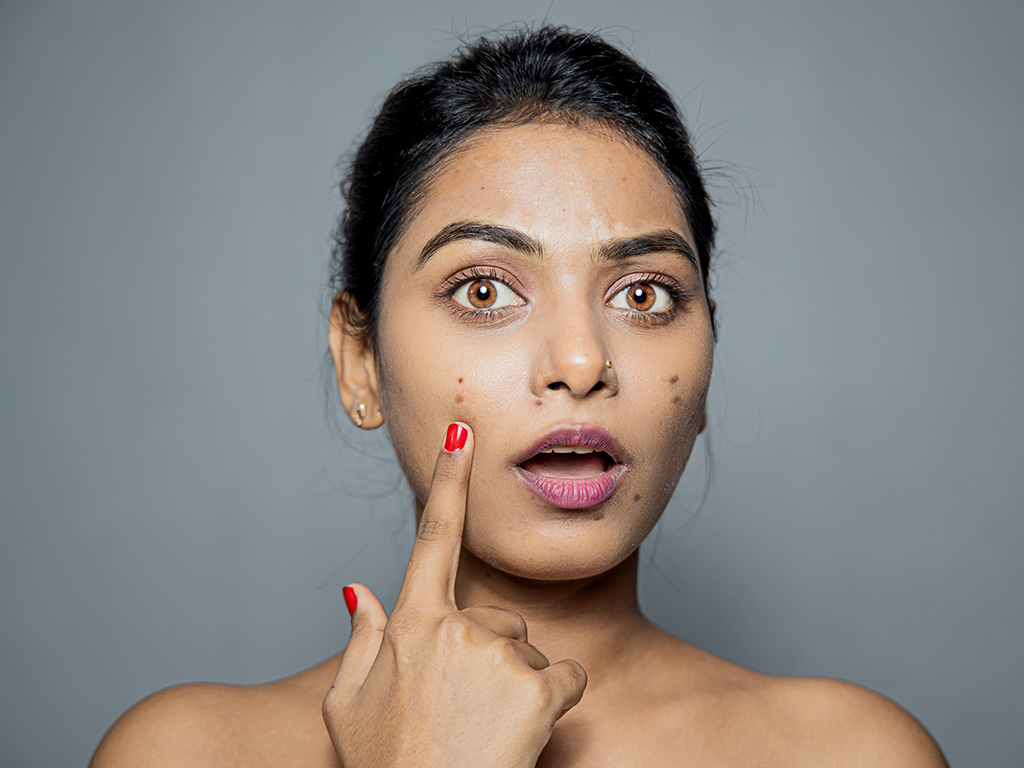
Acne is more common than you know. More than 80% of adolescents and young adults around the world are affected by acne. While some are lucky enough to experience acne only for a short time, for others, it’s a daunting period that requires a lot of time and patience to pass. Dealing with acne scars is as tough as having to treat it.
There are several reasons for acne scar that depend on various factors ranging from genetics to skin type to acne type. Some studies have highlighted that acne scars can seriously affect a person’s self-confidence and have a psychosocial impact by making them feel self-consciousness.
That’s why it’s understandable why a lot of people try to find answers on the internet for stubborn acne scars for fear of them being permanent. However, going online might not be the best thing to do in severe scarring cases.
Scarring can be considered as the ‘after-effect’ of acne. When your skin’s barrier is broken due to an acne breakout, your body produces collagen to heal that barrier. Scarring appears if this collagen production goes off-balance, producing either a bit lesser or an excess amount.
Atrophic scars, more prevalent for acne, that cause depression in the skin’s surface are caused when there is lesser collagen production.
While hypertrophic scars, similar to those left behind by surgical stitches, which cause the skin to ‘bump’ above the skin’s surface are caused due to excess production of collagen.
While any type of acne can lead to scarring, it’s more common with severe types like nodules and cysts that damage the surrounding surface of the skin when popped.
Which is why the first thing a lot of dermatologists recommend is that you do not pick or squeeze your pimples, no matter how tempting it might seem.
Acne scars are divided into three types – namely ice pick, rolling and boxcar scars.
While the risk of acne scarring is higher for people who have these following signs, it’s still a healthy practice to avoid picking at your pimples even if you don’t fall under these categories.
1.You have a higher risk of scarring if you have inflammatory acne type, aka, those swollen, reddish, and painful cysts and nodules. As this acne type is more severe, it’s often rooted deeper into the skin’s barrier, hence possessing more risk of damage.
2.Sometimes not getting proper treatment for severe types of acne can also result in scarring. Think of it this way – the longer these pimples stay on your skin, the more damage they can do/take longer time to heal.
3.While picking, squeezing or popping acne can possibly cause scarring for anyone, genes can often play a huge role in the severity of it.
The best way to avoid these is to prevent acne scars from forming in the first place, but if you already have scars from your teens when you did not know any better, there are certain cosmetic treatments that your dermatologist can recommend based on the severity of your scars.
Effective surgery treatments like subcision, laser treatment or dermabrasion may be recommended to you based on your type and degree of scarring.
If you’re someone who’s not comfortable with cosmetic surgery, skin-resurfacing procedures that remove the upper layers of skin to allow new skin cell production, like laser skin resurfacing, chemical peeling, or microdermabrasion are your best bet. Although it should be noted that resurfacing works best for people who have flat scars that aren’t too deep.
It is important to keep realistic expectations when it comes to these treatments as they only make the edges of the scars less sharp to give them a softer appearance but can’t completely erase their trace.
Once the old scars fade, it is important to take care of your skin and prevent further breakouts. Maintaining a simple yet effective skincare routine can go a long way, including adding research-backed products like AcneStar face wash, formulated by AcneStar Research Institute to your routine.
It is important to not feel overwhelmed or scared when it comes to acne treatments as they can be very safe and effective when done by a good surgeon. The bottom line is to tackle acne in the best way you see fit. And while we know acne scars can severely affect one’s self-esteem, it is important to keep reminding yourself that they don’t define you.
Disclaimer This blog solely intended for the educational/informational/awareness purposes and is not a substitute for any professional medical advice, diagnosis or treatment. Please consult your doctor/healthcare professional before acting on the information provided on the blog. Reliance on any or all information provided in the blog, is solely at your own risk and responsibility. Mankind Pharma Limited shall not be held liable, in any circumstance whatsoever.

Acne is a skin condition that occurs when your hair follicles become plugged with oil and dead skin cells.

it is absolutely imperative to know its type. Acne can be inflammatory or non-inflammatory which further has different lesions, as mentioned below.

Acne starts occurring in teenagers due to an increase in the level of Androgen production. Androgen is a hormone which signals the body to produce more sebum, the oil produced by the sebaceous glands.

Acne is a skin condition that occurs when your hair follicles become plugged with oil and dead skin cells. It often causes whiteheads, blackheads or pimples, and usually appears on the face, forehead, chest, upper back and shoulders. Acne is most common among teenagers, though it affects people of all ages.

Debunk acne myths by following a proper skincare regimen. Taking good care of your skin can help you achieve a glowing and acne-free skin.